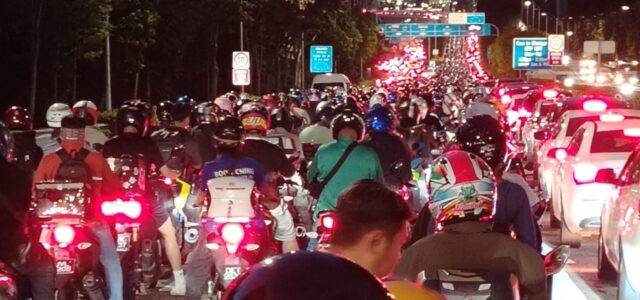Experts call for Singapore–Johor cross-border taxi revamp amid e-hailing debate
experts-call-for-singapore-johor-cross-border-taxi-revamp-amid-e-hailing-debate
#Experts #call #SingaporeJohor #crossborder #taxi #revamp #ehailing #debate,
MALAYSIA: Calls are growing for Malaysia and Singapore to work together to modernise the Cross-Border Taxi Scheme (CBTS), with transport consultants arguing that it no longer meets the needs of thousands of daily commuters between Johor Bahru and the island republic.
According to Free Malaysia Today (FMT), transport experts Wan Agyl Wan Hassan and Rosli Azad Khan said the current scheme — limited to 200 licensed cabs from each country operating only between Larkin Sentral and Ban San Street Terminal — is outdated and underutilised.
Limited reach leaves commuters frustrated
Rosli noted that the CBTS’ fixed points fail to serve many passengers, particularly those living in western Johor. “Commuters have to travel all the way to Johor Bahru to cross to Singapore (via the Causeway). No one talks about this bigger issue and problems faced by those who live on the western side of Johor Bahru,” he said, as reported by FMT.
He added that there are still no taxis or buses serving the Tuas Second Link, despite it being a vital route for travel to southern and western Johor.
Proposals for reform
Wan Agyl, founder of transport think tank My Mobility Vision, argued that modernising the CBTS is the most practical short-term solution, FMT reported. He proposed expanding pick-up and drop-off points, integrating licensed taxis with ride-hailing apps, and piloting a controlled bilateral e-hailing programme.
“This ensures the service meets commuter needs without eroding licensed operators’ livelihoods or creating (the need for) new enforcement,” Wan Agyl explained, citing models from other busy border cities such as Hong Kong–Shenzhen and San Diego–Tijuana.
He also suggested safeguards like reciprocal driver licensing, cross-border insurance, digital booking verification, and geofenced pick-up zones to prevent congestion and protect existing operators.
Rising urgency as congestion worsens
Tebrau MP Jimmy Puah has also called for talks with Singapore to ease restrictions on cross-border e-hailing, arguing that many Johoreans prefer travelling via Changi Airport when heading overseas. However, experts emphasised that quick fixes such as limiting rides to airports or ferry terminals would not be enough to address the long-standing issues haunting the region.
The urgency for reform is further highlighted by the worsening traffic at the Causeway, exacerbated by long queues and limited transport choices.
Read related: ‘No bus at all’: Commuters endure long, miserable waits as public transport falls short
Netizen frustrations
Netizens are quick to express just how frustrated they are over the daily stress they have to face during their commute. Many agreed that reform should focus on making legal services more efficient rather than letting unlicensed ones fill the gap. One user wrote that authorities should “expand the taxi services facilities and not promote ‘illegal’ services. If the public licensed transport services are good and relevant, then all these illegal services will not be in demand. Those who wish to drive to earn a living, then join the licensed platforms.”
Others vented about the state of congestion at the Causeway and Tuas Second Link. “The traffic is so bad,” one netizen sighed, while another remarked that during peak hours, “we can’t even get on a bus.”
Sarcasm also peppered the comments. A few suggested that instead of debating e-hailing, governments should first figure out how to unclog the Causeway jams, with one saying the only real solution is to “build three more bridges before talking about apps.” Another quipped that no amount of fancy pilot programmes will matter if travellers are still stuck for hours in a sea of brake lights
Looking ahead
With the Rapid Transit System (RTS) Link set to open in late 2026, experts believe reforming the CBTS and piloting regulated e-hailing services would complement rather than compete with the upcoming infrastructure. For now, however, cross-border commuters are left waiting in traffic — and waiting for policy change.
Read also: ‘Don’t embarrass yourselves’: Singapore car caught (again) pumping subsidised RON95 in Malaysia
